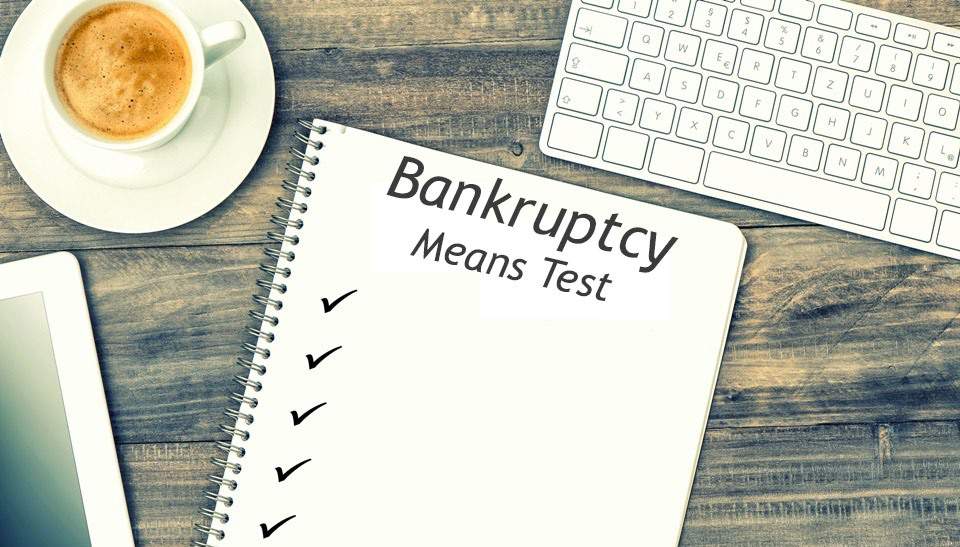When you’re having to deal with debt, it can be stressful enough. Often, it can feel as if the outstanding figure is following you around. If you find yourself worrying about your debt issues when you’re not doing anything financial, it’s time to deal with it. You may have looked into sorting out your debt before, and felt confused or overwhelmed by all the options out there. This feature will deal with two of the most common forms of resolution: bankruptcy and debt consolidation. This should help you decide which one is best for you, and how you’re going to approach the situation from here on.
In order to choose the right course of action, you need to understand a few facts about how these processes work. Debt consolidation involves hiring a consolidation service such as this one: http://www.calmtg.com/refinance/debt-consolidation/. The service will act as a kind of middleman between you and your creditor. When you hire a debt consolidator, they’ll contact your creditor and begin negotiations for smaller payments. The idea is that these negotiations go ahead in your favour, and soon enough the payments will be manageable enough for you to keep up with. Filing for bankruptcy is fundamentally different. When you file for bankruptcy, you’re cutting off your creditors from all of your finances through a recognised legal process. This leeway can then be used for you to re-establish your personal finances. That probably made bankruptcy sound much more straightforward than it is! There are different forms of bankruptcy, each with specific legal requirements. For example, a chapter 7 filing requires you to liquidate all of your assets save a few, such as home and work-related assets. A chapter 13 filing, on the other hand, requires you to start organising your assets, and then start making payments in three to five years.
So now you have an understanding about your two main routes out of debt. So which one is for you? That all depends on your specific situation and finances. Still, there are a few general pros and cons surrounding both methods. Some of these might be deal-breakers, so make sure to read on! The main benefit around debt consolidation is that there’s a lot of discretion. If you’re a businessman or a prominent benefactor, then “bankruptcy” is probably a dirty word. When word gets out about your bankruptcy, your professional reputation could take a blow that it may never fully recover from. Hiring a debt consolidation service will show up on a personal credit report, but apart from that it’s all done in strict confidence. After dealing with you, debt consolidation services won’t reveal their activities to anyone. This includes the creditor, your employer, or a potential employer. Although this can be a huge advantage in some situations, debt consolidation usually means a much bumpier ride than bankruptcy. Filing for bankruptcy carries the advantage of pure relief. After filing, you’ll have all the time and privacy in the world to begin re-organising your finances. You’ll be able to stop worrying about constant calls from collection agencies and more bills from your creditor.
The main disadvantage of choosing a debt consolidation service is the few limitations on the work they can actually do. It varies from company to company, but in general, debt consolidators only work with unsecured loans, such as credit cards. This means that most won’t be able to help you with secure loans. These include things such as mortgages or car loans. Depending on the nature of your debt, you may need to rule out consolidators altogether. Bankruptcy, as we explored earlier, is much more public. If you have a valuable reputation you need to uphold, snowballing debt can often be easier to face than bankruptcy. Also, when you’ve filed for bankruptcy, you’ll find it much harder to qualify for any kind of loan in the future. This is because the bankruptcy will stay on your credit report for several years following. In some cases, it can remain a blemish on your report for an entire decade! You need to go over these relative benefits and disadvantages in close detail before coming to a decision. Both courses of action can have serious repercussions further down the line.
As with any financial decision, you’ll want to know something about the costs involved. Neither bankruptcy and debt consolidation are free. If you’re looking for the most affordable option, it’s probably going to be debt consolidation. Debt consolidation services are usually one arm of a larger financial company like a mortgage banker. When you hire their services, you’ll usually have to pay a monthly fee. How small or large this fee is depends on the nature of your debt, and the extent of the service you require. Most of a consolidation bill is going to be administrative costs, which is why it usually ends up the cheaper option. Filing for bankruptcy will also cost a significant amount of money. Check out http://www.bankrate.com/finance/debt/10-ways-to-bounce-back-from-bankruptcy-1.aspx for some helpful information on this. In order to do it properly, you’ll need to hire an experienced financial attorney. Depending on the situation, the legal fees could rack up much faster than you’d expect! After doing some maths and making some calls, you’ll be able to tell which of these options is more cost effective for you. Whatever your situation, make sure to look into the costs in detail. Your finances aren’t looking too great already, so don’t make them worse by paying out too much.
Bankruptcy, debt consolidation, and other measures are necessary in certain circumstances. There are some debts which can only really be solved by one course of action or another. However, there is an official line with most financial experts. If you ask most experienced bankers and accountants, they’ll tell you that filing for bankruptcy should only be done as a last resort. If your debt is mostly unsecured, then debt consolidation is likely the way for you to go. On the surface, the main reason for this is less of an impact on your credit report. There’s another advantage here, in that the whole process teaches you a bit more about managing your payments, and getting out of debt. If you’re struggling with more large-scale problems, such as foreclosure or repossession. This is because legitimate bankruptcy acts as a foil for the creditors, and keeps their hands off of your assets.
Debt consolidation has a lot of factors to get your head around. However, the consolidation service you hire will be able to provide you with all relevant information. Bankruptcy can be a little more complex, and requires more input from the debtor. Before filing for bankruptcy, you’ll need to inform all of your creditors and collectors. Bankruptcy law requires that all letters, calls and efforts to reach the debtor cease once the petition is filed in court. The moment you settle on filing for bankruptcy, you have to get into contact with your creditor. You’ll need to give them the name of the attorney who’s handling the case, and the district you’re filing in. The other thing you’ll need before filing is a credit counselling certificate. To get this, you’ll need to liaise with a government certified counselling agency. Check out http://www.justice.gov/ust/list-credit-counseling-agencies-approved-pursuant-11-usc-111 for a selection. This session of counselling can take place a maximum six months prior to the actual filing. If you need the bankruptcy to fall through as soon as possible, then don’t waste any time getting that certificate. Without it, there’ll be all kinds of delays and problems. If you’re not already in too much debt, but the future looks shaky, then I recommend going to financial counselling as soon as possible. There are a number of things you may be able to do in order to avoid bankruptcy altogether. You may have to get a second job, sell certain assets, or downsizing to another home. Of course, none of these are likely to be pleasant. However, painful decisions are sometimes necessary to get out and stay out of debt.
If you know there’s no way out of filing for bankruptcy, then the one tip you can’t ignore is to get an attorney. There was a time when bankruptcy laws were straightforward enough for you to manage them yourself. Things are very different in 2016. These days, bankruptcy laws are far too complex for most consumers to fully understand. To make sure you don’t shoot yourself in the foot at any point, you should consult an attorney about your situation. Browse through a few different lawyers before hiring anyone. Some may tell you that there’s no such thing as a benevolent financial lawyer, but they are out there! You want to look for a lawyer who looks for the best course of action for you, and sees bankruptcy as an option rather than a certainty. Even if your legal counsel tells you bankruptcy is the best option, go through all the benefits and costs thoroughly.
I hope reading this guide has helped you towards resolving your debt problems. Remember that once you climb out of debt, you’ll find it much easier to stay out!












Add Comment